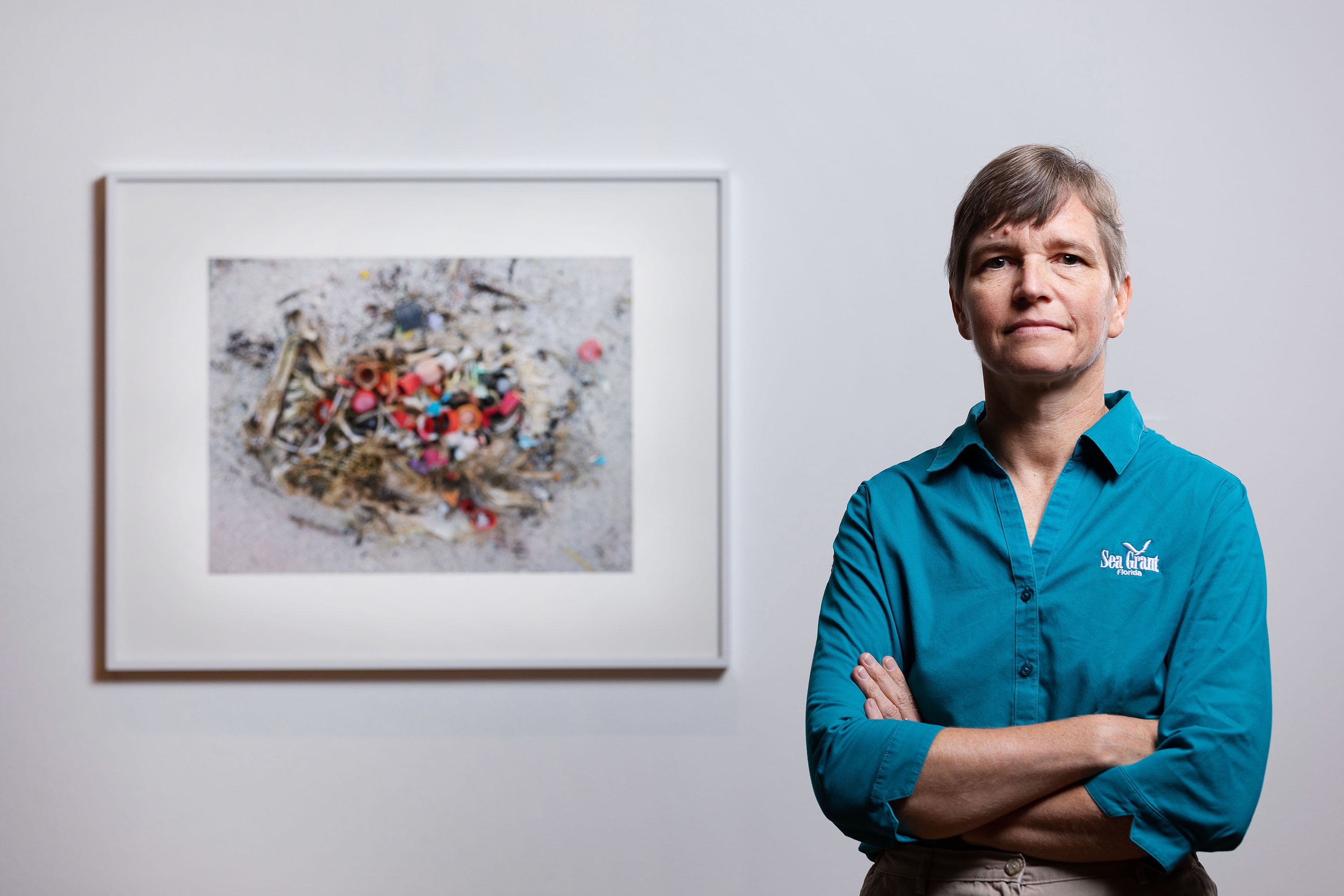"Little by little, a little makes a lot."

Portrait by Brianne Lehan and Lyon Duong/UF Photography. Artwork: "CF000668, unaltered stomach contents of juvenile Laysan albatross (2009)" by Chris Jordan from the series Midway: Message from the Gyre, 2009, courtesy of the artist
Maia McGuire
UF/IFAS Extension Florida Sea Grant agent
Up to 95 percent of litter in the ocean is plastic, which harms wildlife and makes its way into our food and water. McGuire has inspired thousands to make small changes to reduce plastic waste.
Describe your work:
“My job is to teach people about the coastal environment and the ways human actions impact it.”
Taking the pledge:
McGuire created the Florida Microplastic Awareness Project, which offers eight ways to cut plastic waste, from using sustainable shopping bags to choosing natural fabrics over synthetics. “I’m often asked, ‘What can one person do?’ One person can do a lot! I’m blown away by the actions people are willing to take.”
Small changes add up:
“If you go to a fast food restaurant once a week and use a reusable cup instead of a disposable cup, lid and straw, that’s more than 150 pieces of plastic a year you’re no longer throwing away. Little by little, a little makes a lot.”
What’s next?
“We ultimately need policy changes, whether it’s climate change, plastics in the ocean, coastal erosion or invasive species. But by raising awareness and providing people with actions they can take, I really do believe that in the long term, people will band together and things will happen at a higher level.”
How about the short term?
“I’d love to get people to rethink the way they shop. You can buy fruits and vegetables loose instead of in a plastic bag or on a foam tray.” McGuire also carries a container in her car for restaurant leftovers and even a mess kit to avoid disposable plates and utensils. For more ideas, visit plasticaware.org.
This is part of a series highlighting people at the University of Florida working to protect our well-being and the health of the planet, paired with works from the Harn Museum of Art exhibition “The World to Come: Art in the Age of the Anthropocene.” See the full series.